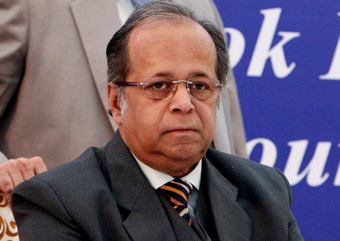 New Delhi, Nov 29: Justice A K Ganguly, former judge of the Supreme Court, believed to have been accused by a law intern of sexual harassment, has recorded a statement before the three-judge committee, which has submitted its report.
New Delhi, Nov 29: Justice A K Ganguly, former judge of the Supreme Court, believed to have been accused by a law intern of sexual harassment, has recorded a statement before the three-judge committee, which has submitted its report.
The Committee headed by Justice R M Lodha submitted the report yesterday after recording the statement of Justice Ganguly, who is now heading the West Bengal Human Rights Commission, an apex court official said today.
Ganguly demitted office as Supreme Court judge on February 3, 2012.
"The committee constituted to inquire into the allegations of sexual harassment levelled by the law intern against a former SC judge held its meetings on November 13, 18, 19, 20, 21, 26 and 27.
"The statement of law intern was recorded. She had also submitted three affidavits. The statement of Mr. Justice (retired) A K Ganguly has also been recorded by the committee. The committee has submitted its report to the CJI on November 28," the official said in a statement.
Officials, however, did not give any further details of the findings of the committee comprising also Justices H L Dattu, and Ranjana Prakash Desai, which was constituted by the CJI on November 12.
The intern had earlier this month told a legal news portal that a "recently retired" judge with whom she was working earlier had sexually harassed.
Hit by the allegation, the Supreme Court constituted the three-judge committee to go into the charge of the intern.
Justice Ganguly was elevated to Supreme Court on December 17, 2008 and demitted office on February 3, 2012.






Comments
Add new comment